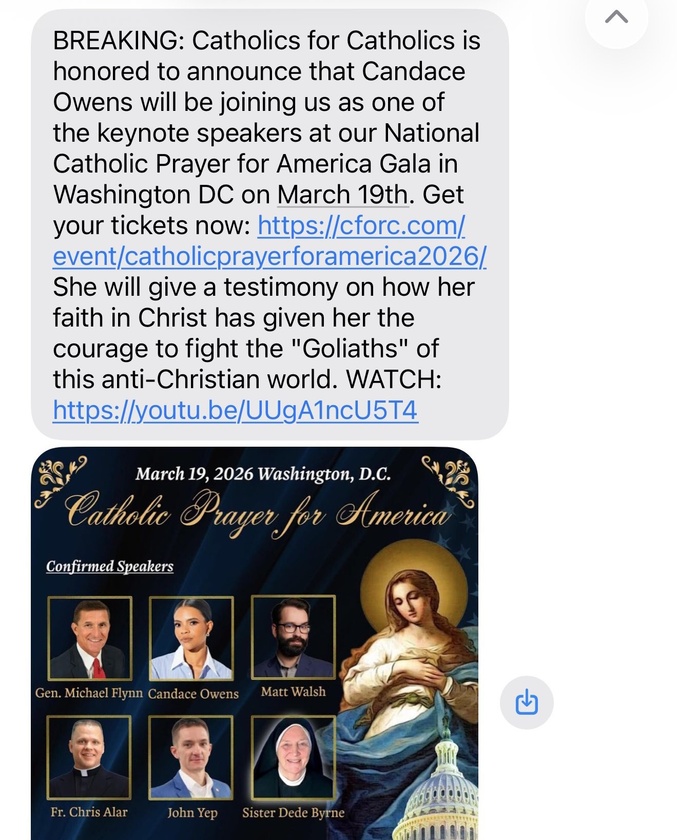During the Spanish Civil War in the late 1930s, Nationalist Generalissimo Francisco Franco advanced on Madrid with the intention of taking it with four columns of soldiers. In the midst of the advance, another Nationalist general, Emilio Mola, was asked on a radio broadcast which of the columns would succeed in taking over the city and finalizing the Nationalist coup. Mola replied that it would be the hidden “fifth column” of supporters and sympathizers within Madrid who would prove decisive by rising up and sabotaging the Republican defense from within.
Ultimately, General Mola was wrong. No “fifth column” arose from within the city, and the Republicans held Madrid. Nevertheless, the phrase immediately caught on. A fifth column to this day refers to a group of people who undermine a larger group, institution, movement, or nation from within.
The Woke Right is a Woke fifth column working internally against America, MAGA, the (American) Republican Party, and the American conservative movement, which is the last anchor tethering our country to the Constitution, common sense, and reality. Whatever might be its primary sources of intention and energy—be those foreign influence, “Deep State,” Democrat, or an organic and opportunistic paleoconservative revolt, or some combination—being a fifth column in the Woke assault against American and the West is the role it certainly plays.
The question is how it has been so successful at recruiting and gaining momentum, given that many of its views are wildly out of step with American values and the traditional perspectives of conservatives in America. Their nativism, isolationism, (genuine) racism, hostility toward Jews and Israel, racial minorities, women, sexual minorities, and legal immigrants, and undeniable antisemitism, not to mention their skepticism of free-market economies, the Constitution, religious liberty, conservatism itself, and a minimalistic state, do not reflect the values of generations of American conservatives or America overall.
Many reasons can be given for their meteoric and bewildering sudden rise. Among them, broad distrust in established institutions and favoring “trusted voices” within the movement who appear to be leading them astray is perhaps at the front. Frustration with the difficulty in pushing back against the Woke Left and its infiltration into our institutions is surely another significant component. Multiplying and tapping the alienation of our young men is definitely another. The outright force of money and the apparently sudden shift of so many voices all at once just in the last year, taking the movement by sudden surprise, must also contribute.
Both within and beyond these reasons, however there is a motivating factor that demands our attention: recruitment upon the “third rail.” The third rail, unlike the fifth column, is a metaphor. It literally refers to the electrified “third” rail subway trains use to power themselves. The idea is that if you were to fall down into the tracks, touching either of the first or second rails, where the wheels of the trains run, would result in nothing particular, but stepping on the electrified third rail would result in your electrocution and destruction.
The “third rail” metaphor therefore describes locations in political discourse that, if touched, will blow up your (professional) life. To the politically naive, these opinions appear to be benign, perhaps even statements of fact, but they work like a political tripwire, causing a huge reaction when they’re aired. A classic American example is attempting to explain the cultural significance of Confederate symbols to many (especially Southern) Americans. No matter how accurate, nuanced, or careful the speaker might be, it will likely be taken as a defense of slavery and sedition, and damage someone’s reputation or career (especially a political career).
Here’s the problem. A population can be pushed to the point where it will regard as bogus and evil the destruction an honest person can expect to receive for stepping on a third rail. For example, someone who earnestly defends the meaning he and many others hold for Confederate symbols might get blown up for “defending slavery,” even though he didn’t. If that happens enough, in unfair enough ways, for long enough, the public might revolt against the injustice of the political third rail.
That’s where we find ourselves with many issues all at once now as the lies of the extended Woke Left collapse around us, and the Woke Right fifth column is recruiting precisely by taking advantage of that situation.
There are two particular dynamics that have played a crucial role with regard to what we might call the Politics of the Third Rail that has enabled the rise of the Woke Right as a fifth column.
First, there’s the uncomfortable fact that many points that reside on the third rail are at least partially true but remain completely politically incorrect. This mismatch is a political powder keg; a bomb waiting to go off. When people aren’t allowed to say true things for undeniably political reasoning, the taboo is regarded not as politeness but censorship of potentially important or meaningful views. A reaction that embraces these views is more or less eventual in such a circumstance, and chances are, it won’t be nuanced when it arrives.
In fact, it usually will not be nuanced at all. The nuanced, careful, accurate voices will already have been shouted down, punished, or destroyed by the time the backlash arrives. The only voices left will not only be less careful by definition but will also be angry enough to assert more than the full truth of the issue. With regard to the issue of the Confederacy, they will not stop at the idea of revering a “heritage” of sovereignty and not being told what to do by a meddling federal government or outside power. They may start explaining why, in their view, slaves were better off than black freemen later, up to and including today.
Because these brash voices look brave and honest compared to the effete political correctness they’re shattering, they’re attractive. They will recruit followings. These followings will, by their intrinsic dynamics, go too far. Worse, by then, even if more reasonable voices step into the fraught space, they’ll sound timid, rather than brave, for their measured approach to the controversial issues, and they’ll fail to stem the tide as it flows toward radicalism and insanity
Second, there’s the fact that the “politically correct” Woke Left has created more, and more obviously bogus, political third rail space than any polite society ever could dream of—or that one will tolerate indefinitely. Undeniably true things like that it is perfectly acceptable to mention the completely banned “n-word” without using it—say by quoting Huckleberry Finn, or explaining the historical use of the term itself, or quoting a popular hip-hop song that says it every second line, or explaining that certain words in Mandarin and Korean sound similar but aren’t it and saying those—are rendered completely verboten, and seemingly arbitrarily. One will notice, for example, that “black people are allowed to say it,” and that many do, enthusiastically, casually, and even viciously, but that a racial double-standard has to be maintained for what appears to be “Woke” reasoning.
The result of this Wokification of discourse is that there’s an incredible and intolerable amount of patently ridiculous discursive and political “third rail” space that makes a great deal of honest discourse and real, necessary problem-solving impossible. As problems mount, the maintenance of the political third-rail space rightly begins to be identified as a big part of the festering problems, and it will be rebelled against. As this political and discursive pendulum swings back, as described above, it will not do so gently.
This isn’t a matter of mere perception, petulance, or, especially, latent bigotry, as the Woke Left and too many in polite society might assert. It is actually the case that the Woke Left has over the last two or three decades succeeded in turning an incredible number of legitimate political and cultural concerns into third-rail space that can hamper communication, prevent finding solutions to genuine problems, chill speech, and unjustly ruin lives. It is as though the Woke Left turned the first and second rails into electrified rails, preventing the train from being able to run and making its very carriages pose a real danger of electrocution.
It is both in and upon this greatly expanded third-rail space in political discourse that the fifth-column Woke Right has succeeded in doing most of its recruiting. Both in the name of and by “boldly” stepping onto the first and second rails, which are unjustifiably electrified, they have occupied both bogus and real third-rail political space and stand inside it as defiant rebels, unafraid of the shocks and calling people to join them. What it represents is freedom, fun, and liberation from an oppressive political, professional, and discursive regime that took advantage of the fundamentals of polite political taboos in order to steal and abuse power. It is therefore a successful recruiting methodology for a radical reactionary movement that rejects not only the bogus political correctness of Woke Left cultural mores but also the genuine guardrails of polite society in favor of a new form of liberation.
The fifth columnists in the Woke Right are using this dynamic to recruit and to drive wedges that undermine their political targets, particularly the United States itself and its conservative movement and institutions therein.
When we see commentators like Tucker Carlson “just asking questions,” what he is doing is stepping into third-rail space and recruiting, including many people who know better but are also now too pissed-off to care. When we see agitators like Nick Fuentes transgressively violating taboo after taboo (with what amounts to Right-wing Queer Theory), what he is doing is standing directly on the third rail and laughing as he redirects the bolts back at his enemies. When we see hordes of “Dark MAGA” influencers follow suit, they’re leading an army of mostly disaffected young men to fill the vacuum created by altogether too much third-rail space in contemporary cultural and political discourse, much—but importantly not all—of it artificial, odious, and purposefully malicious in the first place.
Thus, a fifth column that seeks to destroy America through its conservative movement has been able to recruit an angry army that has become shameless in the process of shedding false causes for shame. The are the fifth column standing on the third rail, and they threaten to undermine our shining city on the hill from within as our enemies advance upon us from without.
How can they be dealt with? One way only exists to us. We must steal their thunder (pun intended
We have to be honest. We have to occupy third-rail space ourselves with honesty, integrity, and nuance. We must be unafraid to tackle well these touchy issues that the Woke Right fifth-columners are tackling badly, and we must create a new civic norm of championing, not attacking, those who enter those spaces honestly and in good faith in order to deal earnestly with what partial—or sometimes full—truths reside there.


















